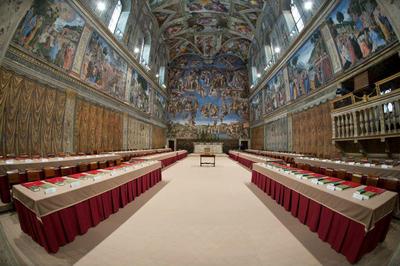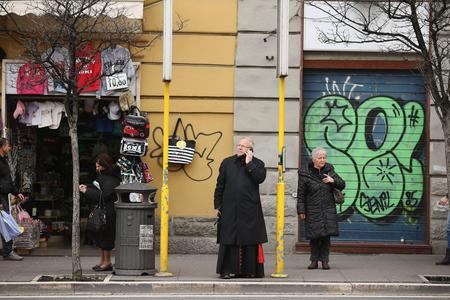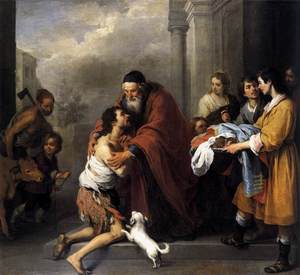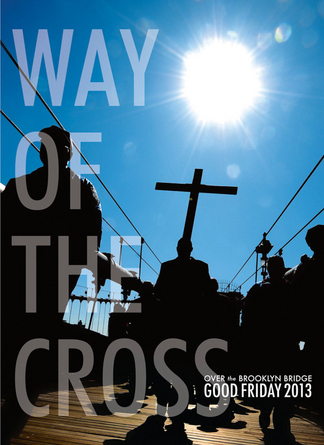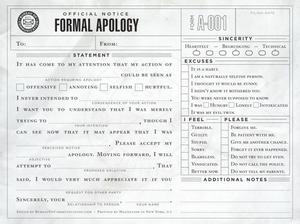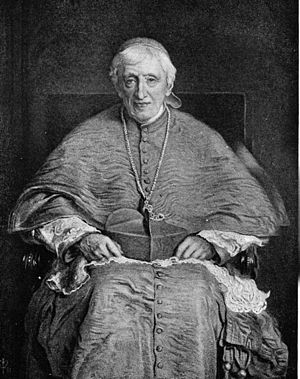Going my way???
Laetare Sunday
Rejoice, Jerusalem, and all who love her. Be joyful, all who were in mourning; exult and be satisfied at her consoling breast.
Laetare Jerusalem: et conventum facite omnes qui diligitis eam: gaudete cum laetitia, qui in tristitia fuistis: ut exsultetis,et satiemini ab uberibus consolationis vestrae.
With the Church we pray
O God, who through your Word reconcile the human race to yourself in a wonderful way, grant, we pray, that with prompt devotion and eager faith the Christian people may hasten toward the solemn celebrations to come.
In the Mass of Paul VI today’s gospel, if you don’t have catechumens at Mass, is the parable of the Prodigal Son. We know both sons have no clue of who they are persons without the father indicating their moral and human reality. The sons clearly miss the point of their familial sonship. This biblical narrative is heard in the Church as one of the many examples of nature of the Church, especially considering the role of the father. Here we understand the father not only be to biological father of children who need teaching but he stands for the Church who teaches but also reconciles, corrects error but rejoices in a return.
Saint John Chrysostom teaches,
There were two brothers (Luke 15:1-3, 11-32): they divided their father’s goods between them and one stayed at home, while the other went away to a foreign country, wasted all he’d been given, and then could not bear the shame of his poverty…The reason the father let him go and did not prevent his departure for a foreign land was that he might learn well by experience what good things are enjoyed by the one who stays at home. For when words would not convince us God often leaves us to learn from the things that happen to us. When the profligate returned…,the father did not remember past injuries but welcomed him with open arms…Are you asking: ‘Is this what he gets for his wickedness?’ Not for his wickedness, but for his return home; not for sin, but for repentance; not for evil, but for being converted.
Saint Frances of Rome
O God, Who in Saint Frances of Rome, has given us a model of holiness in married life and of monastic conversion, make us serve You perseveringly, so that in all circumstances we may set our gaze upon You and follow You.
This painting given here for today’s lectio is attributed to Antonio del Massaro da Viterbo, depicts Saint Frances of Rome (1384-1440) being clothed by the Mary in the white veil of her Benedictine movement that, even today, characterizes the Olivetan Benedictine Oblates of Mary she founded in 1425.
Mary, Mother of God wears a mantle of gold, which Saint Paul at the left wraps around Frances Romana. The presence of certain saints is instructive: the great evangelizer, Saint Paul, Saint Mary Magdalene (the Apostle to the Apostles and dressed in red) and Saint Benedict, the Father of Western Monastic Life, with the various ranks of angels, including Francesca’s Guardian Angel. Magdalene and Benedict wrap/invest the mantle on the gathered Oblates.
The angel below the Gothic windows is busy carding golden threads with a warp and loom. Nearby are two frisky dogs and two cats, a frequent sight in Rome. The Oblate Congregation, commonly thought to be woven together by heavenly graces and harassed by evil spirits. The evil one is given flesh in the form of cats and dogs. As a testimony of grace the Oblates flourish today at Tor de’Specchi. Several years ago I had the privilege with many others to pray in this monastery opened to the public only Saint Frances’ feast day.
I have longed hoped that the Oblates of Saint Frances of Rome would found a house in the USA. We are ready for this witness.
Way of the Cross over the Brooklyn Bridge to Ground Zero 2013
Since 1996, Communion and Liberation, an ecclesial movement in the Catholic Church, has organized the Way of the Cross over the Brooklyn Bridge. With God’s grace, year after year the event has grown — thirty people became a hundred, two hundred, three hundred, four hundred, a thousand, until, at last year’s Good Friday thousands New Yorkers followed the Cross all the way to Ground Zero.
It thus gives me great joy to invite you to participate in this year’s Way of the Cross over the Brooklyn Bridge to Ground Zero. The event begins at 10am on Good Friday – March 29, 2013 – at St. James Cathedral-Basilica, 250 Cathedral Place (corner of Jay and Tillary Streets) and it will conclude at 1:30pm so the participants can attend the Good Friday service in their parish. The cathedral can be reached by taking the A, C, or F train to the Borough Hall Stop in downtown Brooklyn.
After a station on the Brooklyn Bridge, the procession will follow the cross to a third station at City Hall Park in Manhattan, and a fourth station near Ground Zero. The final station will be at St. Peter’s Church on Barclay Street, concluding at 1:30 pm.
At each station, there will be readings from the Passion, a meditation, a reflection and hymns. All are invited to participate.
For more information, please call Communion and Liberation at (212) 337-3580 or visit the website.
Conclave date set: for the good of the Universal Church, solum Deum prae oculis habentes.
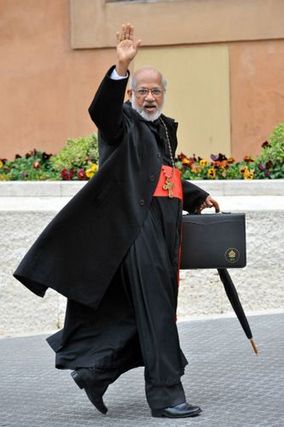 The Cardinals have determined that the Conclave will begin on 12 March 2013. The Votive Mass Pro Eligendo Pontifice (For the Election of the Pontiff) will be offered in the morning at Saint Peter’s Basilica by the Cardinal Dean and later that afternoon the cardinals will process from the Pauline Chapel to the Sistine praying the Litany of Saints.
The Cardinals have determined that the Conclave will begin on 12 March 2013. The Votive Mass Pro Eligendo Pontifice (For the Election of the Pontiff) will be offered in the morning at Saint Peter’s Basilica by the Cardinal Dean and later that afternoon the cardinals will process from the Pauline Chapel to the Sistine praying the Litany of Saints.
Formal Apology or reconciliation
One of the things I did this week was to available myself to the sacrament of Confession. As a spiritual disciple I try to get to the sacrament every month; regrettably it was more than a month since the last time I received the sacrament. Let me also recognize that Father Luigi Giussani encouraged the Memores Domini and other followers in Communion and Liberation to go to confession every 15 days. It was great to go to confession: a refreshed sense of life in Christ, especially in my relations with others, in the reception of Holy Communion, but I had the distinct feeling of having a “new humanity.” Going to confession is a recognition of Someone greater in my life, that the living of my is not merely about me and my selfish interests, and that sin is corrosive, but the sacrament of confession (aka penance, or reconciliation), helps me recognize the truth about me: that I am truly loved by God, whose other name is Mercy.
Change your clocks Saturday
Newman: God has created me to do Him some definite service
I am visiting the Benedictine Abbey of St Anselm (Washington, DC) to get away from “stuff” where I normally live. Life there is particularly tense these days. A topic for another time. Time in quiet, time in prayer, time to think, to ponder bigger questions, time to read and to enjoy life in a different key for a short time. Life is fine. It won’t last long, don’t worry. I have friends here. Yesterday I was trying to understand happiness. Newman gave perspective. Today, I am trying to understand my place is a world of utter chaos, not exclusively my own chaos but more importantly the world’s.
At breakfast another guest at the abbey said he thought the US was heading to another civil war. I received an email and later texts that the two year old son of a friend is in the hospital with a serious ear infection, an acute illness that has made itself a longtime, and unwelcomed guest in this person’s life; there is also the fact that we are working toward the conclave but problems that need discussion, and the list goes on. This afternoon I sat for an hour with my friend Aidan, the abbot-emeritus of this abbey, who is just a delight to speak converse with, and who is living with the grace of Parkinson’s. (Blessed John Paul II, pray for Aidan!) Aidan can track a conversation for the most part; he loses words and can be side-tracked; but he’s capacity for friendship is great.
BUT what am I supposed to do? How do I approach the reality of life? Where is God leading me, why, and for what reason? Do I have a part to play in life? Newman has a helpful answer…
1. God was all-complete, all-blessed in Himself; but it was His will to create a world for His glory. He is Almighty, and might have done all things Himself, but it has been His will to bring about His purposes by the beings He has created. We are all created to His glory–we are created to do His will. I am created to do something or to be something for which no one else is created; I have a place in God’s counsels, in God’s world, which no one else has; whether I be rich or poor, despised or esteemed by man, God knows me and calls me by my name.
2. God has created me to do Him some definite service; He has committed some work to me which He has not committed to another. I have my mission–I never may know it in this life, but I shall be told it in the next. Somehow I am necessary for His purposes, as necessary in my place as an Archangel in his–if, indeed, I fail, He can raise another, as He could make the stones children of Abraham. Yet I have a part in this great work; I am a link in a chain, a bond of connexion between persons. He has not created me for naught. I shall do good, I shall do His work; I shall be an angel of peace, a preacher of truth in my own place, while not intending it, if I do but keep His commandments and serve Him in my calling.
3. Therefore I will trust Him. Whatever, wherever I am, I can never be thrown away. If I am in sickness, my sickness may serve Him; in perplexity, my perplexity may serve Him; if I am in sorrow, my sorrow may serve Him. My sickness, or perplexity, or sorrow may be necessary causes of some great end, which is quite beyond us. He does nothing in vain; He may prolong my life, He may shorten it; He knows what He is about. He may take away my friends, He may throw me among strangers, He may make me feel desolate, make my spirits sink, hide the future from me–still He knows what He is about.
O Adonai, O Ruler of Israel, Thou that guidest Joseph like a flock, O Emmanuel, O Sapientia, I give myself to Thee. I trust Thee wholly. Thou art wiser than I–more loving to me than I myself. Deign to fulfill Thy high purposes in me whatever they be–work in and through me. I am born to serve Thee, to be Thine, to be Thy instrument. Let me be Thy blind instrument. I ask not to see –I ask not to know–I ask simply to be used.
John Henry Newman
Meditations on Christian Doctrine with A Visit to the Blessed Sacrament Before Meditation, 299
7 March 1848
